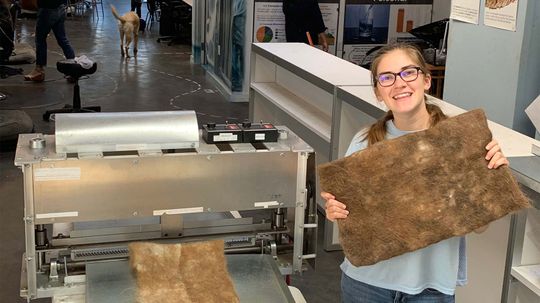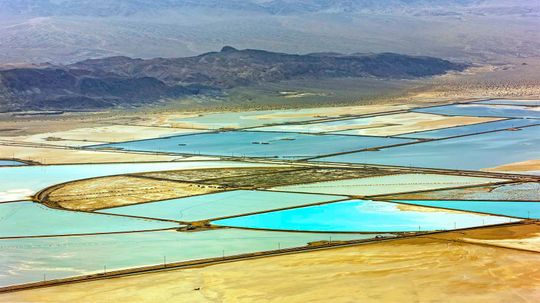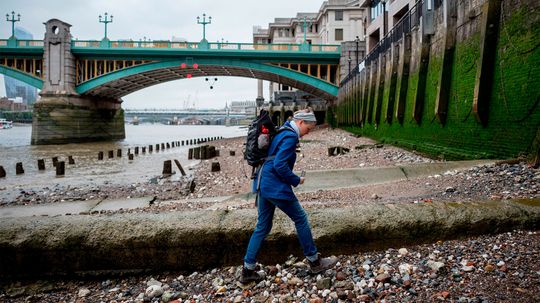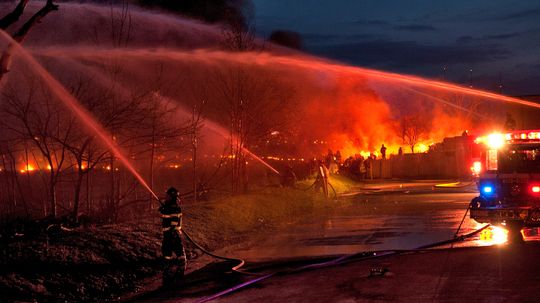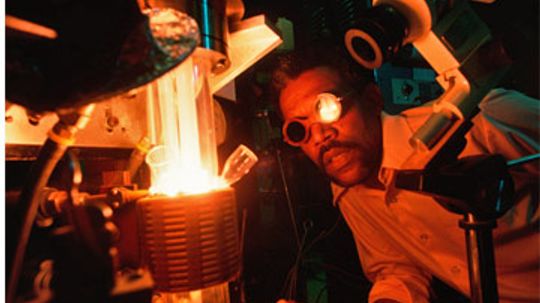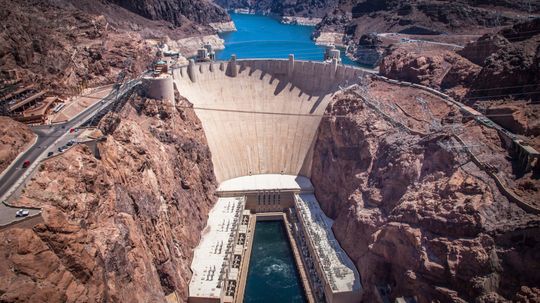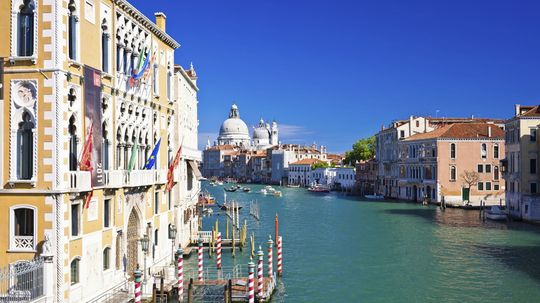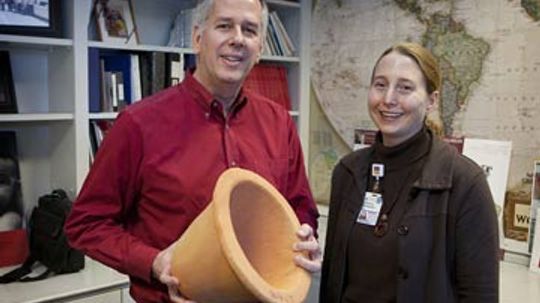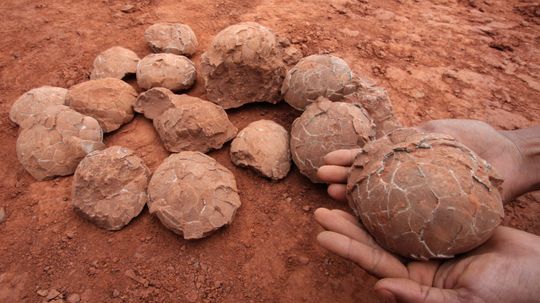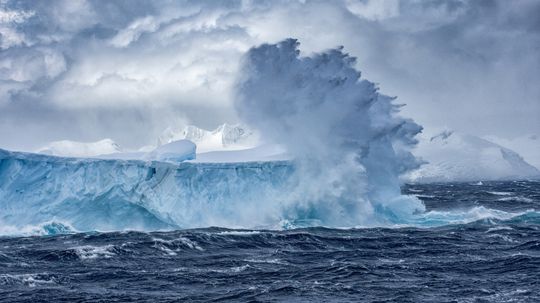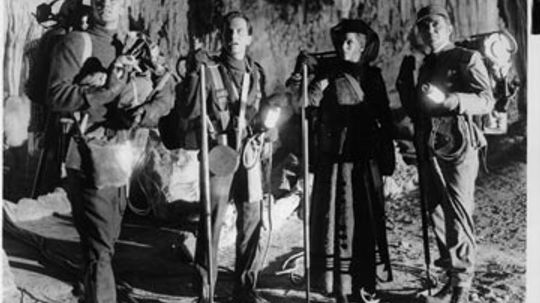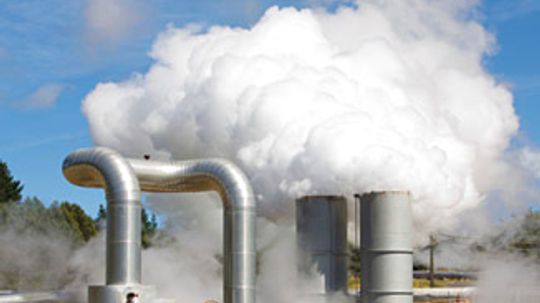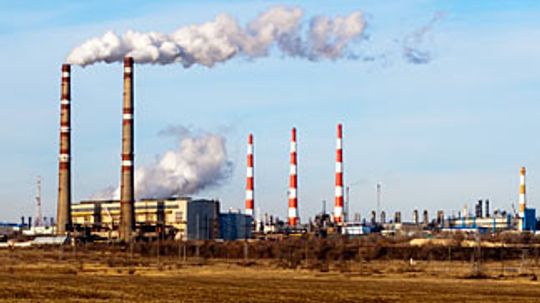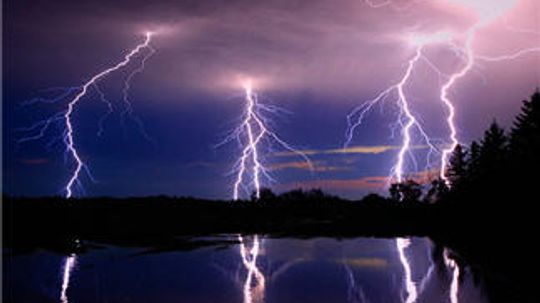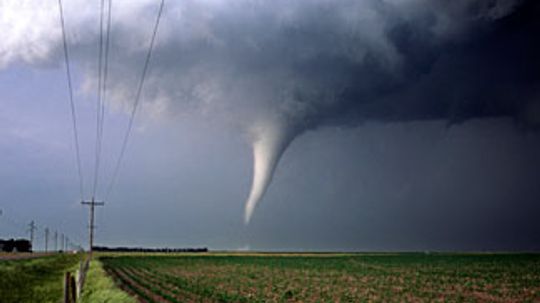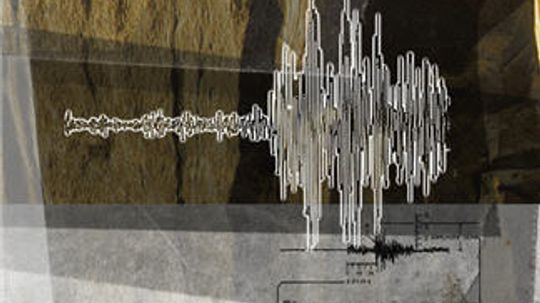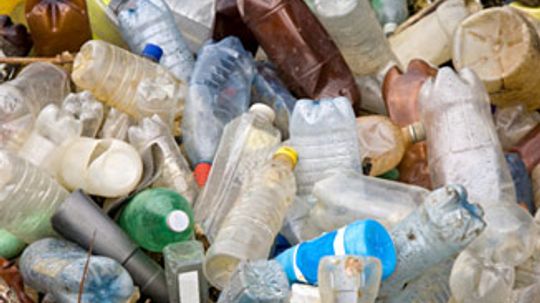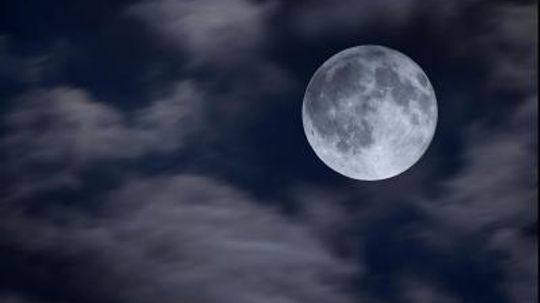Environmental Science
The environment is truly a thing of beauty and should be protected whenever possible. What can we do to save the environment, and what new technology is available to help us?
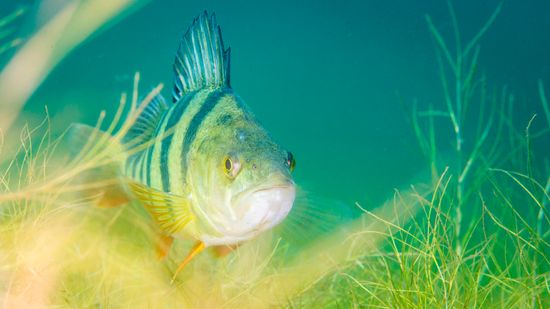
The Fish Doorbell Isn't a Joke ... Seriously
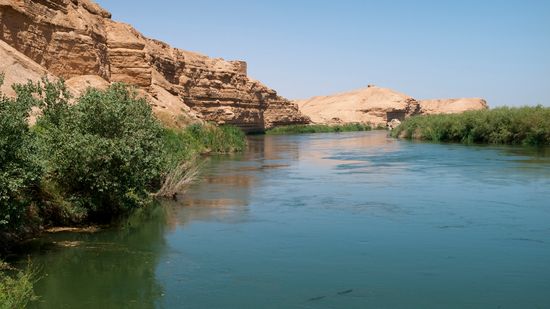
The Euphrates River, at the 'Cradle of Civilization,' Is Drying Up
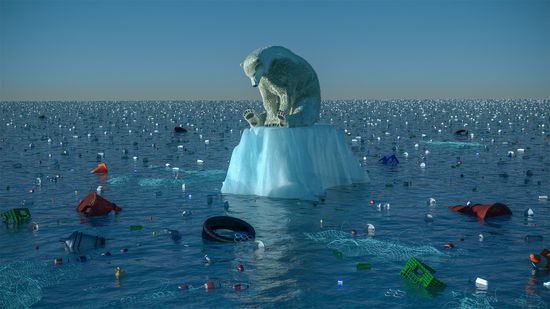
Study Says 2035 Is Climate Change Point of No Return
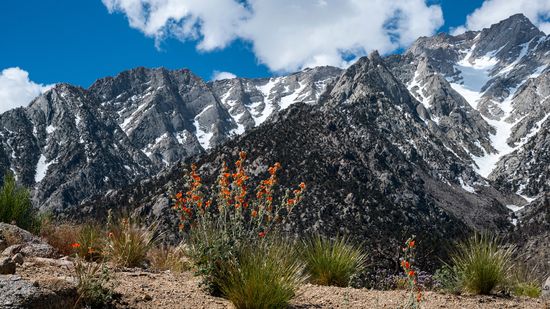
What State Has the Most Mountains in the U.S.? 8 Peak Records
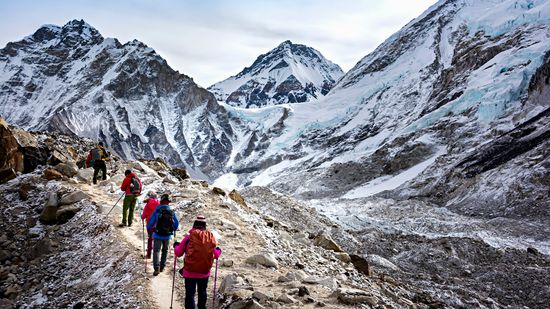
The Most Dangerous Mountain to Climb (and 14 Giving Steep Competition)
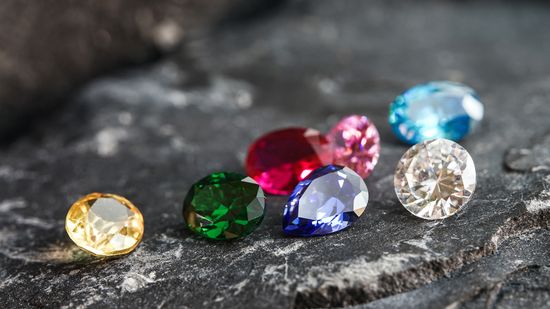
15 Types of Gemstones to Add a Little Sparkle to Your Life
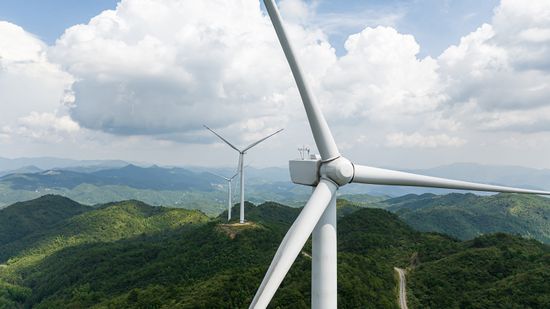
How Many Birds Are Killed by Wind Turbines, Really?

How a Lithium Mine Works and Impacts Local Communities
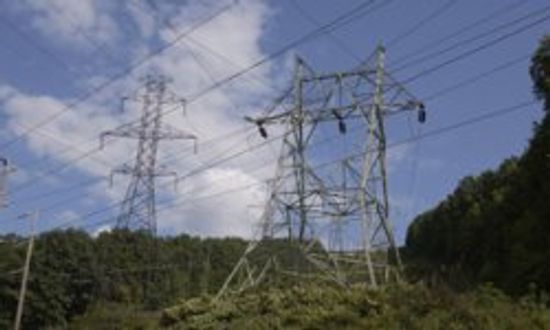
How to Sell Electricity Back to the Grid
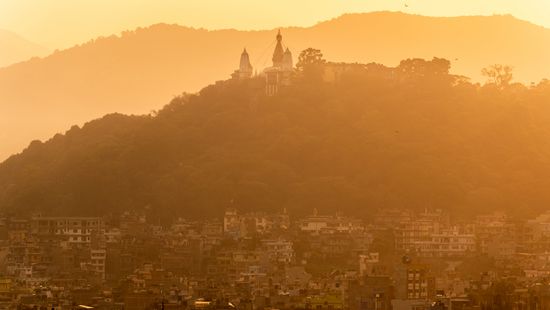
The Worst Air Quality in the World Is in Mountainous Terrain

The World Hits 8 Billion People; Is That Good or Bad?
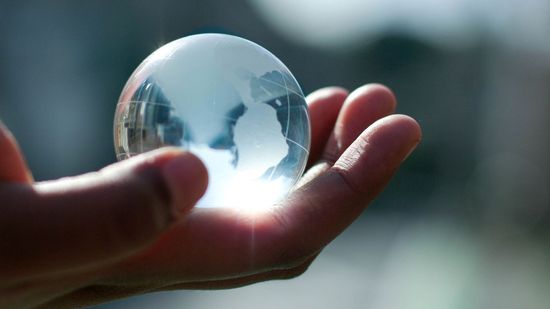
Quiz: Can You Tell Climate Change Fact From Fiction?

6 Most Futuristic Cities Powered by Renewable Energy

Top 5 Green Robots

5 Things to Consider When Building a Solar-powered Home
Learn More / Page 15
Hair trimmings from salons and personal donations can be repurposed as mats that soak up oil spills and help protect the environment.
The element lithium is one of just three created during the Big Bang and has been used for mental health care for decades. But now it's in higher demand than ever before.
Does searching through the mud of a riverbank for treasures of old sound like a fun way to spend a day? If so, you may just be a true mudlarker at heart.
Advertisement
Forest-fire prevention has been a touchstone of American consciousness since the creation of Smokey the Bear in the 1940s. But now, environmental experts believe that some amount of fire is good for the forest too.
From the Hope diamond to the shiny bits in instant coffee, crystals have always held the power to fascinate us humans. Are they more than just a bunch of pretty facets?
People all over the world are working on turning this very ancient power source into an even more important modern one. And that means a lot more than dams.
The oceans are rising, and they're threatening to take down some of the world's brightest cultural gems. Here are 10 of the most notable spots endangered by climate change.
By Chris Opfer
Advertisement
As far back as 1500 B.C.E., people were trying to purify water to make it drinkable. And we're still at it. Today inventors use tools as simple as clay and as sophisticated as carbon nanotubes to bring clean water to the world.
You likely heard that paleontologists uncovered a cache of dinosaur embryos, bone fragments and eggshells in China. You also may recall that we've made crazy leaps forward in genetics and genomics. Can we put the two together and create a dinosaur?
We argue that living well requires wine and cheese, but what does living at all require? You might be surprised to find out that there's no single definition.
To say geologic time moves at a snail's pace is an insult to snails. Our planet's continents are always in flux: Could a new ocean grow amid those incredibly slow changes?
Advertisement
Have you ever read "Journey to the Center of the Earth" and wondered if it were possible to do it? Well, scientists are in the process of giving it their best shot. How hard is it to dig a hole this deep, and what might they find?
The idea behind a green transportation infrastructure is one that provides opportunities for people to get around their communities using their own power -- such as walking or biking. In this article we 10 ideas for greener transportation.
By Chris Warren
The energy choices we make today have a huge impact on the generations that follow. In this article you will explore 5 energy choices for a sustainable future.
By Jane McGrath
The transportation sector is the second largest producer of carbon dioxide emissions is the U.S. Is it possible to reduce emissions without stiffing the importing and exporting of goods? You'll discover the answer in this article.
By Dave Roos
Advertisement
The explosion and fire that destroyed the Deepwater Horizon drilling rig in the Gulf of Mexico in April 2010 killed 11 crew members and triggered an environmental nightmare.
For all our hand-wringing over the oil supply, it might shock you to realize that the solution to our dependence on fossil fuels lies right under our feet.
By Dave Roos
Until recently, natural gas was thought of as one of the cleanest fossil fuels. Yet new studies say it may be worse for the ozone layer than coal -- a fuel well-known for its harmful emissions.
When it comes to looking to the energy source that will replace fossil fuels, there are no shortage of options.
By Talal Al-Khatib
Advertisement
From corn to solar power, scientists have been searching every crevice of the Earth to find reliable sources of alternative energy. Could lightning be the answer?
Amid the deadly gusts of wind and chaotic storms signaling an impending tornado, you rush indoors to a safe place to escape harm's way. But is there a way to actually benefit from that destructive power?
Imagine an energy source that was infinite, clean, and completely scalable. It would solve many of the world's problems -- and sounds too good to be true ... right?
Fossil fuels, including coal, oil and natural gas, supply the bulk of the world's energy demand. Wind, the sun and nuclear energy are ascending sources of power worldwide. Could we tap into the power from earthquakes?
By Talal Al-Khatib
Advertisement
Lots of people consider recycling to be kind of a no-brainer, something we all should do. It's good for the environment, it re-uses materials rather than creates new ones, it reduces landfills - the list goes on and on.
A few decades ago, the pursuit of clean energy was "green." Now, it's a necessity. Not only is our power consumption propelling the human race toward a hot, watery, lonely end, but clean energy tends also to be renewable.
By Julia Layton
